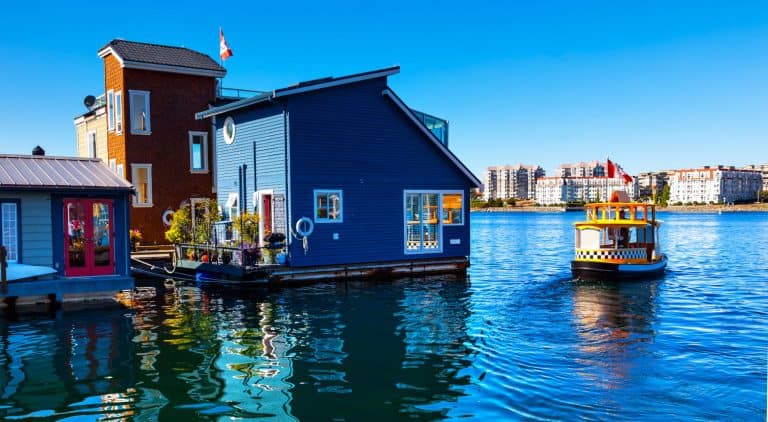Do You Need a Boat License for a Houseboat?
New and aspiring houseboat owners must wade through a sea of laws concerning boating licenses, boating certificates, and other laws. Consequently, many people wonder whether they need a boating license for a houseboat.
To avoid boating fines and other penalties, you will need a boating license for a houseboat in most cases. Boating laws vary widely by state, so the only way to know for sure whether you need a boat license is to check your state government’s website.
Continue reading to find out more about boat licenses, boat certificates, the process to obtain a boat license, and more important information.
Boating Laws Vary By State
Houseboats aren’t generally treated differently than other boats when it comes to licensing requirements, and boating license requirements vary by state. Because of this, there is no straight answer to the question “Do I need a boating license for a houseboat?”
However, there are resources out there to help you find information on boating license requirements in your state. For instance, if you live in Illinois, you can find boat license information online at Illinois.gov.
You’ll find the law spelled out clearly, stating the boater minimum age, under what circumstances a younger boater can drive under adult supervision, and who is required to take a course to obtain a boating license.
On your government’s website, you’re also likely to find contact information for boat education testing sites and links for online boating classes.
Find Quick Boating Law Information for Your State
If you are looking for quick, at-a-glance information about the boating laws in your state, Boat-Ed’s list of boater safety courses will be especially helpful.
There you will be able to:
- select your state
- browse all courses available for that state
- see a shortened version of applicable boating laws
- Access additional state boating information via links at the bottom of the page.
Another resource that you can use to find quick information is NASBLA’s Education Requirements Dashboard. There, you’ll find an interactive map of the United States where you can click on your state for fast facts on boating education requirements.
Side note: Some states don’t use the term “boating license”. Instead, the term “Boating Safety Education Identification Card” is used. Sometimes the terms are used interchangeably. But in most cases, these terms refer to cards used as proof of successful completion of the boating education requirement for a particular state.
Do You Need a Boating License to Rent a Houseboat?
As mentioned above, boating laws vary from state to state, and boat rental laws are not exempt. To learn about your state’s laws regarding boat rental requirements, you will need to do your due diligence and check your state’s government website.
You can also contact the rental company to ask about the relevant laws as well as their own rules.
How to Get a Boating License
The exact steps you take to obtain a boating license for a houseboat, sailboat, powerboat, or a personal watercraft are specific to the state you live in.
In the majority of cases, you can complete your boating test online and get your certificate/license that way. It’s much easier to get a boating license than it is to get a driver’s license, because in virtually all cases, there’s no on-water boat driving test requirement.
See below for step-by-step requirements for obtaining your boating license:
- Research and become familiar with the boating license requirement for your state.
- Enroll and complete a state-approved boater education course. This exam may take place in-person or online.
- Take and pass the test that follows the boating course.
- Submit your payment for the course.
- Whenever you are out on the water, make sure your boating license is with you.
Make Your Boating Education Course Count
To increase your chances of successfully passing your boat licensing exam, you may want to supplement your course with some extra studying. Study guides are available online for boating education. There are also practice exams that you can take to get your feet wet.
Here are some resources that you can use to help you pass that boating exam the first time:
Your Boating License is Valid in All States
Once you complete an official boating safety course (like boat-ed.com) and obtain your boating license, your license is valid in all states. Each state that has boater education requirements accepts your boating license if it was issued by a NASBLA (National Association of State Boating Law Administrators) -approved authority.
This is great because you aren’t required to go through the entire boating education and licensing process if you take your houseboat across state lines.
How Much Does a Boating License Cost?
Boating license costs vary based on the company that administers the test, but it is generally very affordable.
- The BoatUSFoundation, offers boater license courses free of charge in 35 states. The courses are NASBLA approved and recognized by the U.S. Coast Guard.
- Boat-Ed.com offers U.S. coast guard recognized/NASBLA-approved boating license courses from $25 to $35.
- Other boating license providers offer boating license courses for anywhere from $20 to $50.
Note that the state could impose a registration fee. Check with your state to make sure.
Do Boating Licenses Expire?
Once you complete the process and have your boating license in hand, it’s wise not to assume that you’re good to drive your boat indefinitely.
Some boating licenses are only valid for a set span of time. The only way to know if your boating license will expire is to check with your state for specific licensing information.
Penalties for Boating Violations
Following boating laws is very important, because failure to follow the laws can lead to severe penalties. Boating law violators could face steep fines or be arrested. If convicted of criminal offenses (like misdemeanors or felonies), violators could pay even higher fines or face jail time.
Your best bet is to be informed of your state’s laws and abide by those laws.
What if My State Has No Boat Education Requirements?
If your state doesn’t have any boating requirements, then you don’t have to worry about a boating license course or test for legal reasons.
And while that may seem like a free pass to jump in your boat and go, it’s still beneficial to read up on how houseboats work and how to ensure your own safety while either riding or docked. If you have the time, you may even want to take a course even though it’s not required.
When you’re out on the water, it’s much better to be safe than sorry.
Age Requirements for Boating
A person’s age is an important factor in determining whether a person can operate a boat. Every state has a different set of age requirements for boating licensing.
In researching the age requirements for your state, you may see that younger kids, generally under the age of 10 are not permitted to drive boats or personal watercrafts. While slightly older kids, usually aged 10 to 12 can drive a boat under the supervision of a licensed adult. Older kids and adults over the age of 12 are generally able to go through a boating education course and take the test for a boating license.
Upon checking with your state’s government, you may discover that your state’s regulations are a bit different. So, be sure to do your research for your specific state.
Now you know all about boating education, steps to obtain a boating license for your houseboat, and how to find state-specific information about boating laws. You’re well-prepared to make sure you’re legally ready to get your houseboat out on the water.





